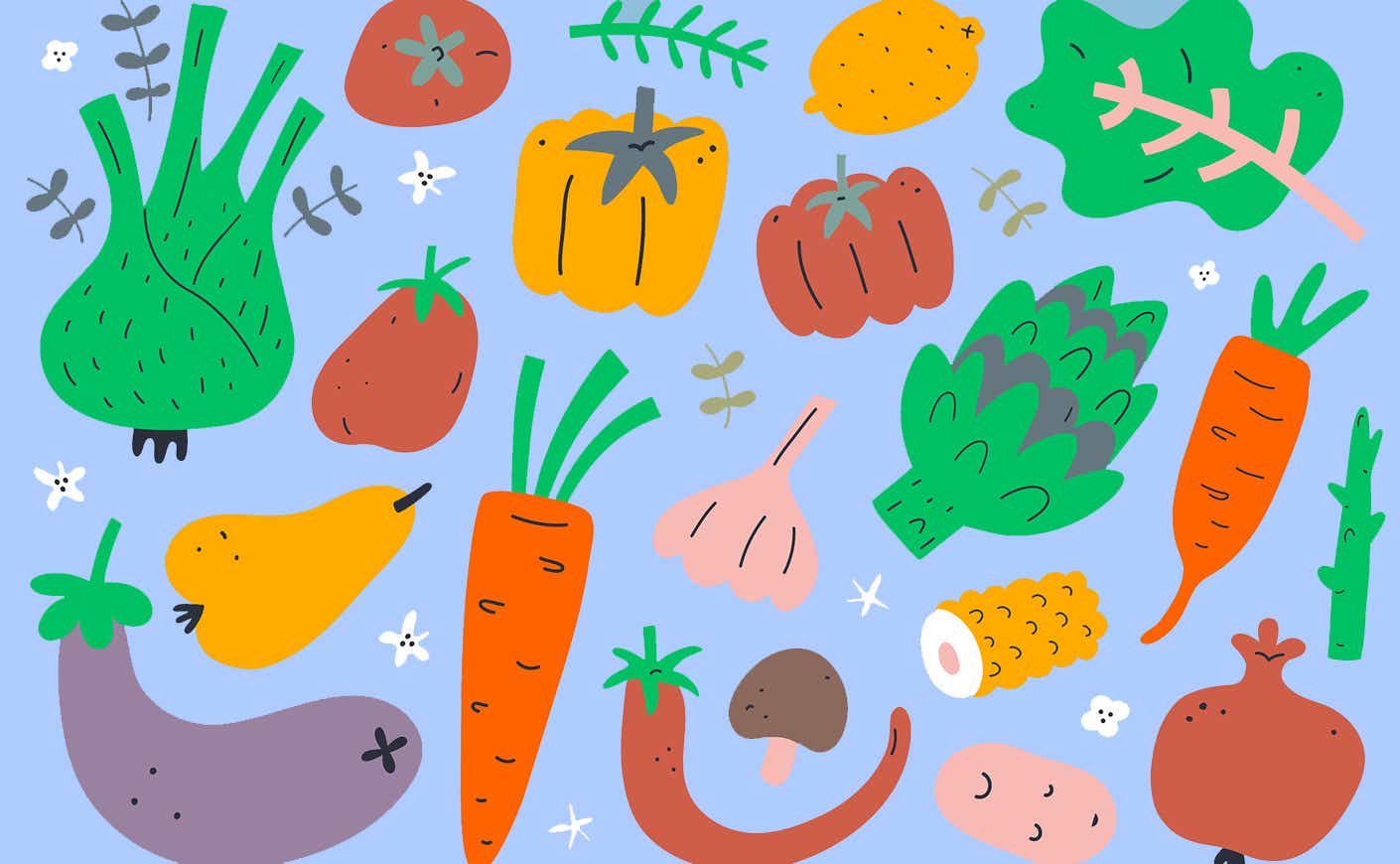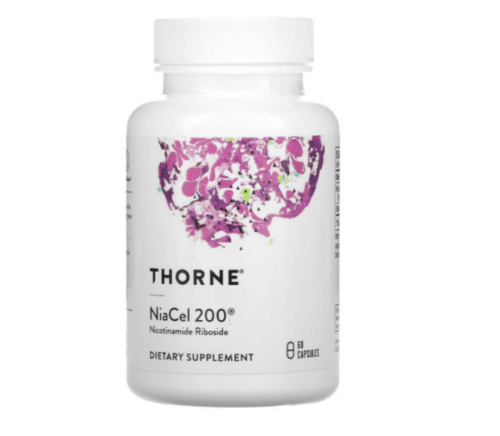The phrase, “You are what you eat,” has been ringing in our heads since childhood. But how much does last night’s dinner actually impact your skin?
We asked Dr. Goldstein, Adjunct Clinical Associate Professor in the Department of Dermatology at University of North Carolina at Chapel Hill. She filled us in on the best way to eat to get the healthy, vibrant skin we’re all craving — and even foods that can help protect from skin cancer. Here’s how packing your plate with the right food can change the way you look from within.
Katie Couric Media: How does what you eat affect the look of your skin?
Dr. Beth Goldstein: There’s a clear association between our diets and our skin health. Our skin is our body’s largest organ, so more often than not, it shows signs of decline or disease when our health fails. For instance, when your diet is lacking in certain nutrients, such as zinc, iron or Vitamins A, C, D, B6 or B12, you might experience rashes, sores or hair loss. On the other hand, eating a balanced diet that is rich in antioxidants may help with improved skin, from fewer wrinkles to reduced sun damage.
What should people know about vitamins’ impact on skin health?
One myth about our diet and skin health centers around the impact of the biotin on hair and nail growth. While many people take biotin supplements for hair and nail health, too much biotin can interfere with vital blood tests and sometimes cause nausea. More importantly, the evidence isn’t strong that it creates any skin benefits in healthy people. Plus, excessive intake of some vitamins, like vitamin A, can cause dry lips, skin and hair loss, along with systemic effects like change in vision, bone pain, and liver damage.
How can your diet contribute to skin aging?
We all know that the number one contributor to skin aging is photoaging — 90% of all skin aging is associated with sun exposure.
That being said, a 2019 study of Dutch women showed that women who ate mostly plant-based diets — including fruits, legumes and limited refined sugar or dairy — had fewer wrinkles vs. those who ate a diet heavy in red meat, deep fried foods, and processed snacks. (And that experiment included controlling for sun exposure, weight and smoking.)
Also, people with diets high in excess sugar, or people who have diabetes, may have a disease process called glycation, resulting in the breakdown of our elastin and collagen (which keep skin looking supple). Ultimately, this may lead to a loss of skin elasticity, wrinkles, and impact the supporting collagen that’s essential to our blood vessels.
Which nutrients promote healthy skin?
The best way to get the full benefit of nutrients for your skin and body, says Dr. Goldstein, is through eating whole foods, not by taking a pill.
Here are a few key nutrients that can create healthier skin — and are pretty delicious, to boot:
- Vitamin A can help with skin rejuvenation, and reduce the effects of ultraviolet damage — try eating carrots daily (⅔ cup, if you can).
- Vitamin B covers a broad range of important skin nutrients. It’s a strong antioxidant and wound healant that helps to reduce inflammation, and serves as a great anti-aging nutrient. (Peanuts and citrus fruits are both great sources of B.)
- Vitamin C helps reduce damage from the sun, is a key nutrient in immune function and wound-healing, and helps maintain your skin’s hydrating properties. An orange or a serving of fresh, cooked broccoli is a great source of Vitamin C.
- Vitamin D helps improve your skin’s immune system, which may help in healing wounds and reduce inflammation. One serving of salmon (3.5 ounces) is a great source of vitamin D.
- Vitamin E helps protect against ultraviolet damage and reduce harmful effects of inflammation. Sprinkling 2 ounces of sunflower seeds on a salad will provide good amounts of Vitamin E.
- Zinc minimizes inflammation and protects against infection. My favorite way to get extra zinc is via eating a few ounces of dark chocolate. (2 prunes also works equally well, but they’re not my personal pick.)
- Copper helps stimulate collagen and reduces damage, since it’s an antioxidant — one ounce of almonds or cashews provides good amounts of copper.
- Selenium is a strong antioxidant, and can be found in brazil nuts and in fortified pasta.
What are some foods everyone should add to their grocery list for healthy skin?
I highly recommend Dr. Rajani Katta’s useful info — and the wonderful, simple recipes on her site. Otherwise, all of these products and foods below have lots of the key ingredients that promote skin health:
- Green Tea
- Most vegetables, including tomatoes, red peppers, broccoli, cauliflower, cabbage, artichokes, asparagus, leafy greens, onions, jicama, and garlic
- Many spices, such as basil, ginger, cumin, turmeric, and cloves
- Fruits: berries, avocado, pomegranate, grapes, bananas, apples, and watermelon
- Grains: whole wheat, oats, barley, brown rice, and quinoa
- Legumes: lentils, beans, chickpeas, and soybeans
- Nuts/Seeds: almonds, walnuts, pecans, flax seed, and chia seeds
- Yogurt
- “Good fats,” including olives, olive oil, avocado, avocado oil, salmon, tuna, trout, sardines, and mackerel
What about foods that can help treat acne?
Eating for clear skin tends to focus on diets with lots of lower glycemic load foods, meaning foods that don’t cause blood-sugar spikes. (Think: starches like breads and pasta, and desserts.)
Eliminating pizza from a teenager’s diet may be a tough recommendation to follow, so it’s important for them to know the facts about foods that can aggravate acne. According to a study in the Journal of the American Academy of Dermatology, some forms of milk have been linked with acne, perhaps because of hormones or altered fat absorption. Another study showed that subjects with acne had lower levels of Vitamin D. While this isn’t a cause- and-effect situation, these findings prove that proper nutrition does matter.
Still, the fact remains that for most people, diet alone does not cause acne. Even a perfect diet won’t usually cure acne, but a proper diet does play positive role in helping keep it under control.
Can diet help prevent skin cancer?
For skin-cancer prevention, supplements can be helpful: 1000 units per day of Vitamin D has always been my “go-to” recommended supplement. That’s because some adults aren’t necessarily getting adequate amounts of it in their diet alone.
Interestingly, new research has shown that the best vitamin for the skin, if you’re at high risk for skin cancer, is Vitamin B 3 in the form of nicotinamide (not niacin). High risk patients who were given this particular form of Vitamin B at 500 mg twice daily for 12 months saw a 23% reduction in new non-melanoma skin cancers and precancers. It is important to note the benefits only lasted as long as they continued taking the supplement.
Antioxidants can also help reduce UV damage by capturing free radicals, and reducing other processes that are damaging to the skin and can lead to skin cancer. The best-studied and most promising supplements are beta carotene (also found in carrots, squash, and sweet potatoes) and selenium (found in plants grown in soil, and some meats and fish).
Dr. Beth G. Goldstein is an Adjunct Clinical Associate Professor in the Department of Dermatology at University of North Carolina at Chapel Hill.










